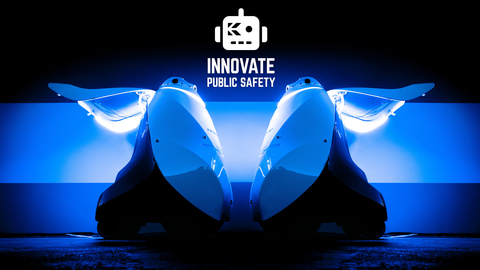Knightscope Issues Public Safety Innovation Challenge to Mayors Across U.S.
Security Innovator Commits Mutually Beneficial Resources to Improve Public Safety

Knightscope Issues Public Safety Innovation Challenge to Mayors Across
The first role of government is to protect its citizens. Every American has a fundamental and basic right to live in a safe country, in safe communities, and that right should not be held exclusively by a tiny portion of the population – it should be enjoyed nationwide. Today’s top 10 safest cities seem to have 3 key characteristics:
- populations in the +/-40,000 range
- median income in the 6 figures
- likely to be somewhere in the Northeast
Knightscope’s challenge is to jointly drive city officials, community leaders, local businesses, schools, the Governor, state and federal officials as well as the insurance companies and law enforcement authorities to develop an overarching plan to make a material, positive difference in the safety of its citizens from a holistic, city-wide view.
- Jointly develop a comprehensive public safety and security architecture for the participating city
-
Dedicate a
Knightscope Development Center (KDC) in the city, creating new high-tech jobs for the community - Establish a Knightscope Public Safety Fusion Center to properly integrate all the new capabilities across the city
-
Create a robotics club for local schools with direct access to the
Knightscope team - Establish a cross-section of citizens to rally together in support of the effort
This initiative is focused on cities that could properly utilize more than 100 Autonomous Security Robots (ASRs) as a starting point. Those interested should submit their information at www.knightscope.com/innovate.
About
Forward Looking Statements
This press release may contain “forward-looking statements” about Knightscope’s future expectations, plans, outlook, projections and prospects. Such forward-looking statements can be identified by the use of words such as “should,” “may,” “intends,” “anticipates,” “believes,” “estimates,” “projects,” “forecasts,” “expects,” “plans,” “proposes” and similar expressions. Although
View source version on businesswire.com: https://www.businesswire.com/news/home/20220628005524/en/
Source:







